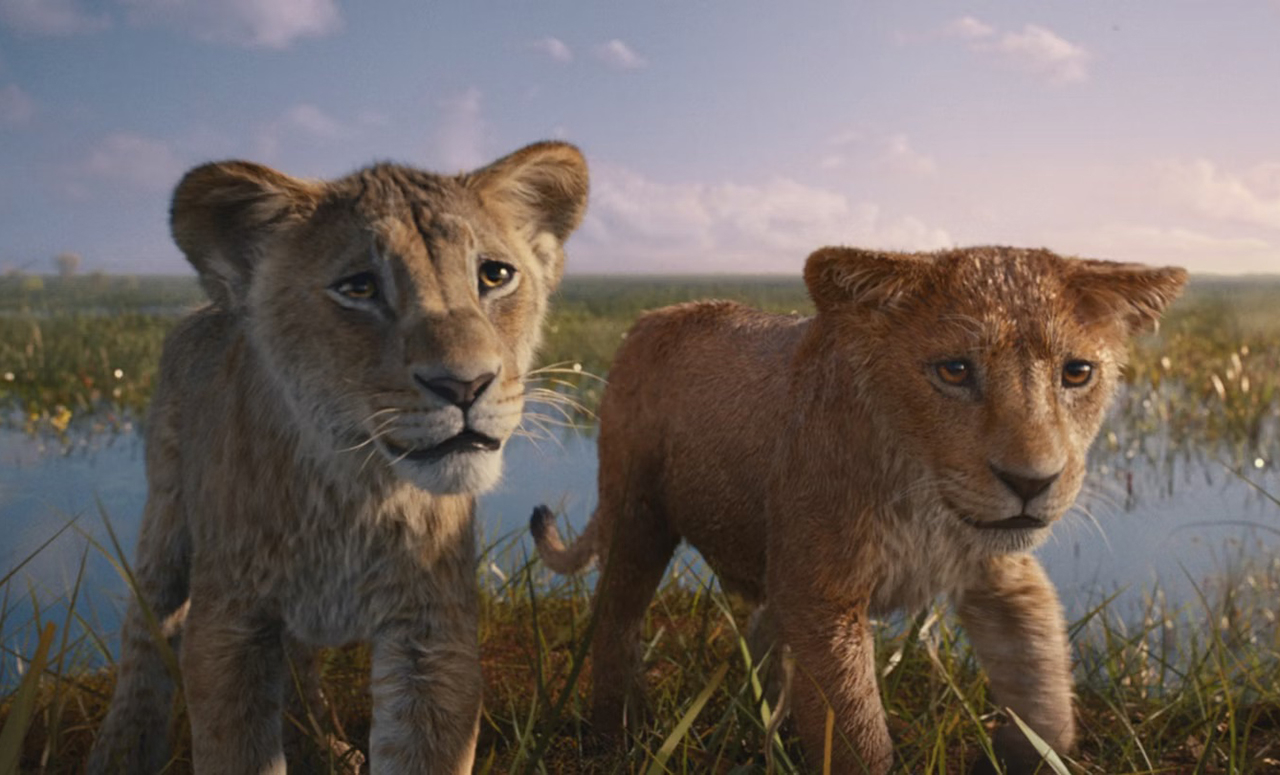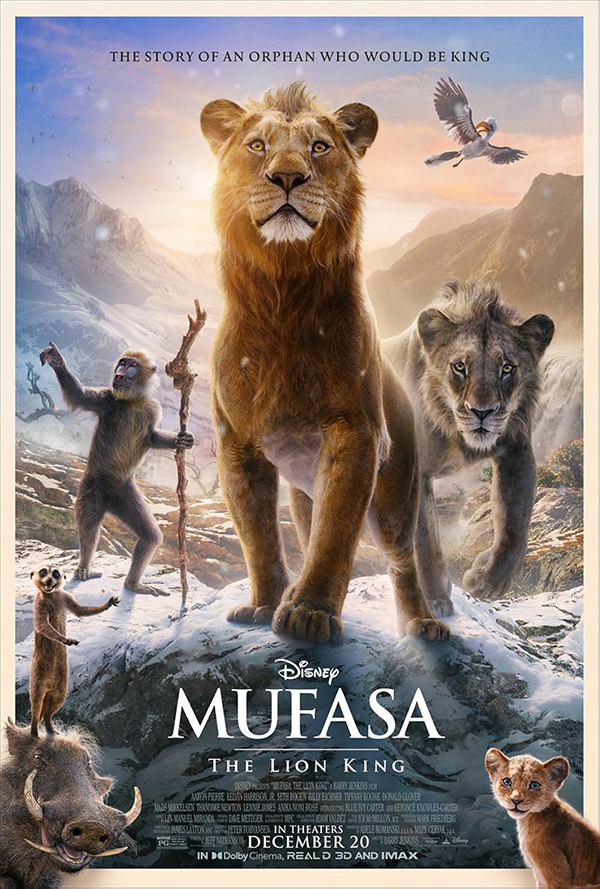Mufasa: The Lion King

Perhaps the most anticipated Disney prequel of all time, Barry Jenkins’s Mufasa: The Lion King begins on a strong note, diving headfirst into Mufasa’s early struggles and his journey to becoming the wise and noble ruler of the Pridelands. The musical drama grapples with surprisingly mature themes of identity, power and betrayal, with the portrayal of Mufasa as a lost princeling navigating trials in a foreign tribe offering an unexpected and touching backstory that deepens his character. However, these strengths are hindered by a storytelling structure that alternates between the past and present, as these shifts often focus unnecessarily on Kiara (voiced by Blue Ivy Carter), daughter of Simba (Donald Glover) and Nala (Beyoncé), whose youthful perspective fails to provide meaningful insight into Mufasa’s journey. The beloved Timon (Billy Eichner) and Pumbaa (Seth Rogen) also appear alongside the young cub, but their antics, while entertaining at first, begin to feel tone-deaf and distracting as Mufasa’s tale takes a darker turn.
While the constant back-and-forth between timelines detracts from the film’s main focus, Disney’s photorealistic animation brings the familiar savannah landscapes to life with breathtaking attention to detail – each blade of grass, glint of sunlight and ripple of cascading water captured with meticulous care. The prequel also expands the Lion King universe, venturing into new terrains such as icy mountain ranges and rushing rivers, adding depth and variety to the movie’s cinematography. Lin-Manuel Miranda’s theatrical songs, paired with a soaring orchestral score, elevate the tension and emotional highs of key moments but fall just short of capturing the epic quality of the original film’s soundtrack. Jenkins’s distinctive use of intimate close-up shots remains impactful, even as he ventures into animation with a leading cast of anthropomorphic lions
However, not all aspects of the prequel land as successfully. While the early brotherhood between Mufasa and his sibling is touching and accompanied by great tracks, the long-awaited backstory of Taka (Kelvin Harrison Jr), his betrayal and his adoption of the name “Scar” feel underdeveloped. Similarly, the main antagonist, Kiros (voiced by Mads Mikkelsen), the fearsome leader of the Outsiders – a pack of white lions hunting Mufasa – is a missed opportunity. Despite Mikkelsen’s natural gravitas and subtle hints of a tragic backstory linked to Kiros’s leucism, the character remains an unremarkable adversary in what could have been a much more compelling narrative.
As its title suggests, Mufasa: The Lion King successfully solidifies Mufasa’s mythology within the Disney canon, particularly through his powerful speech as he unites the animals of Milele to battle Kiros and the Outsiders in the climax. But despite its visual splendour, the prequel’s disjointed narrative and underdeveloped supporting characters mean that, while The Lion King fans will undoubtedly appreciate the visuals and nostalgic memories, many may find themselves missing the original’s timeless magic.
Christina Yang
Mufasa: The Lion King is released nationwide on 20th December 2024.
Watch the trailer for Mufasa: The Lion King here:

























Facebook
Twitter
Instagram
YouTube
RSS